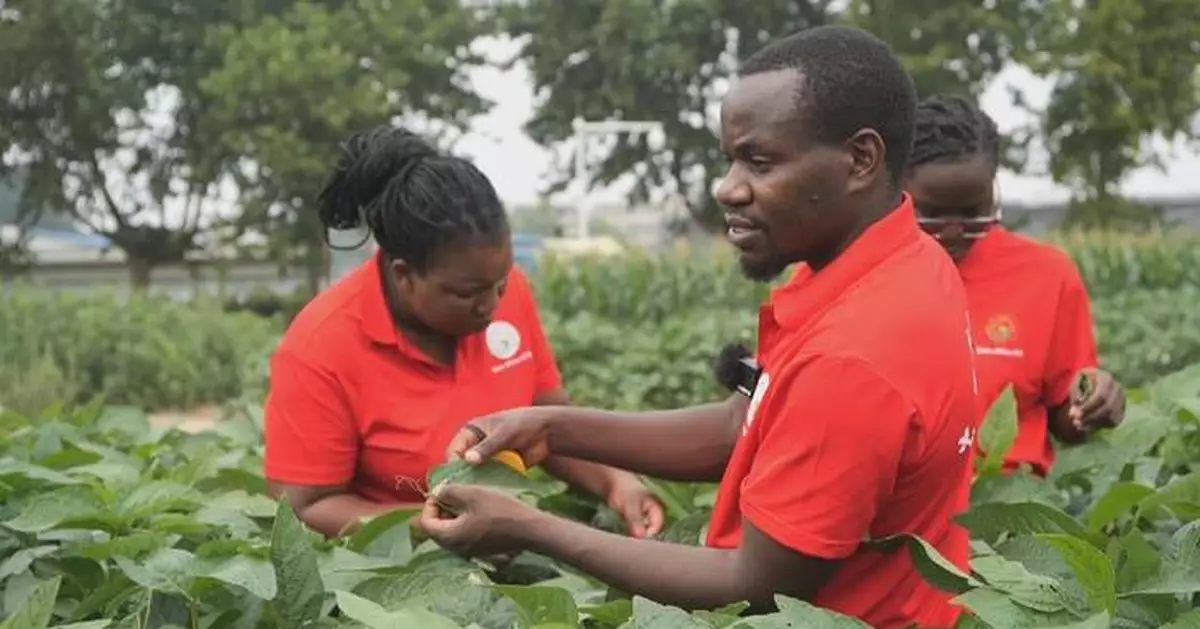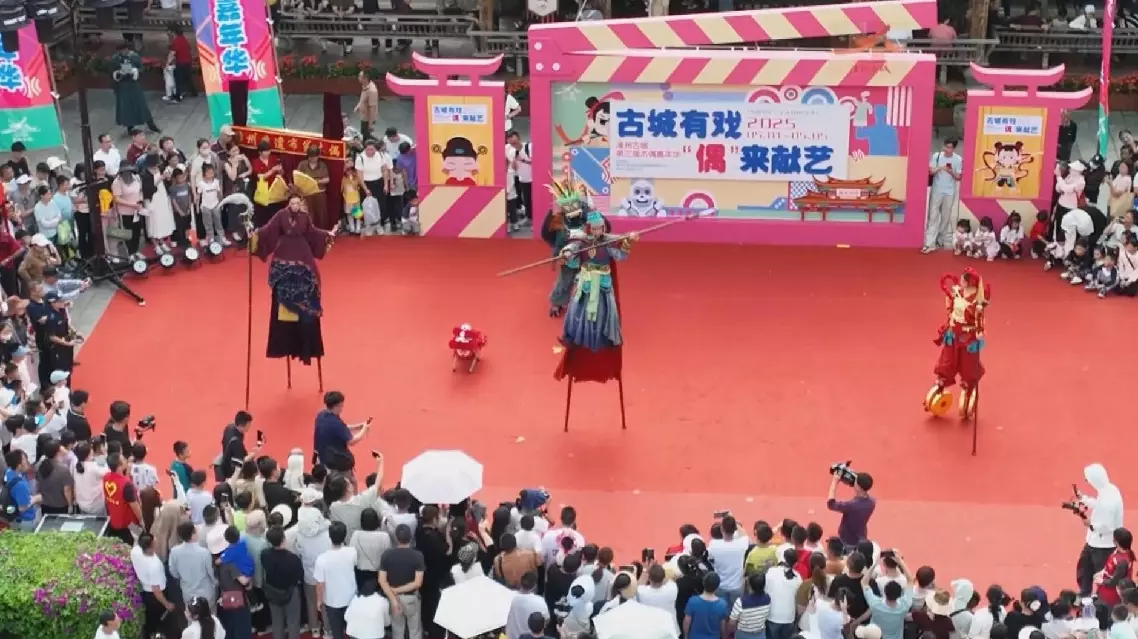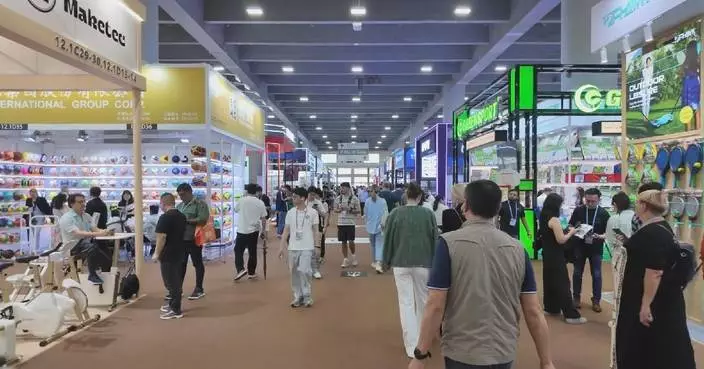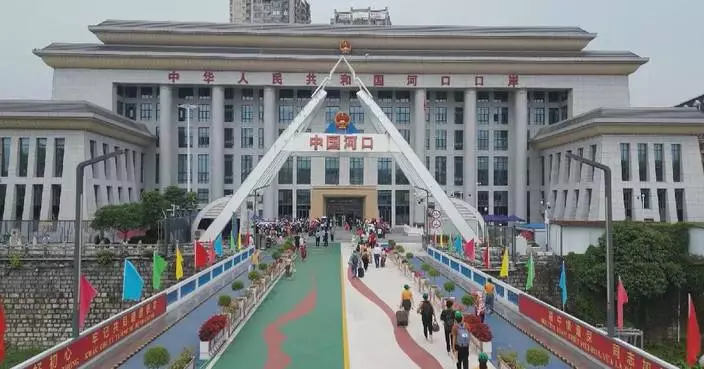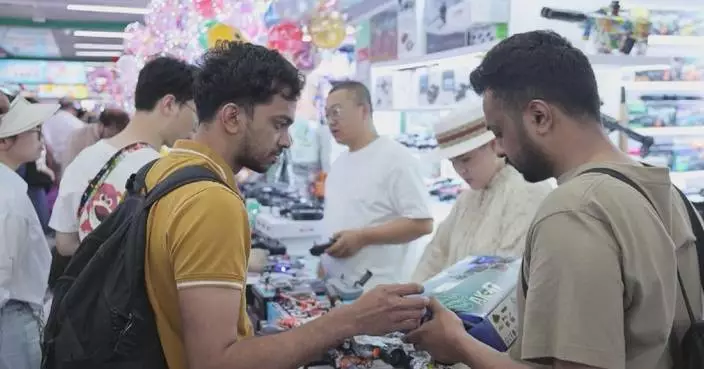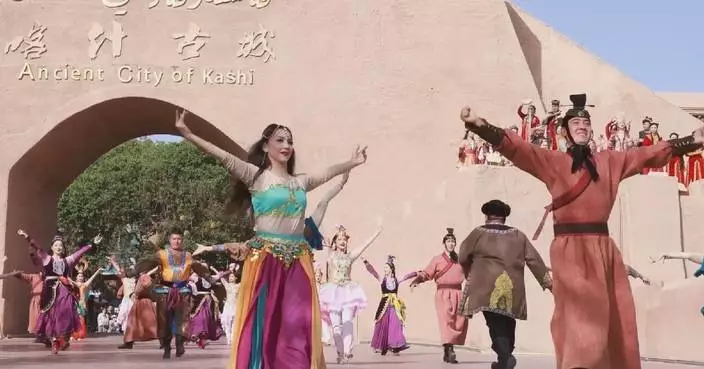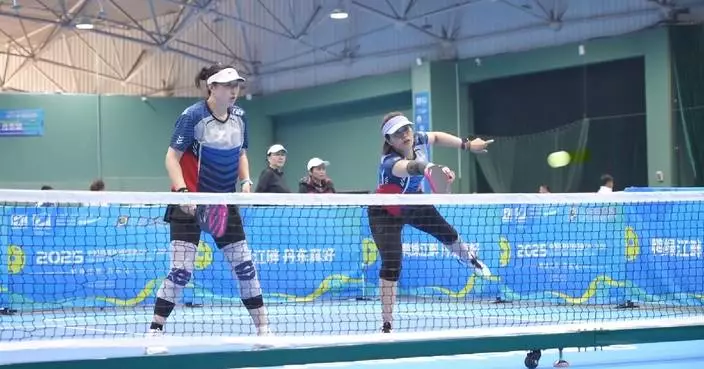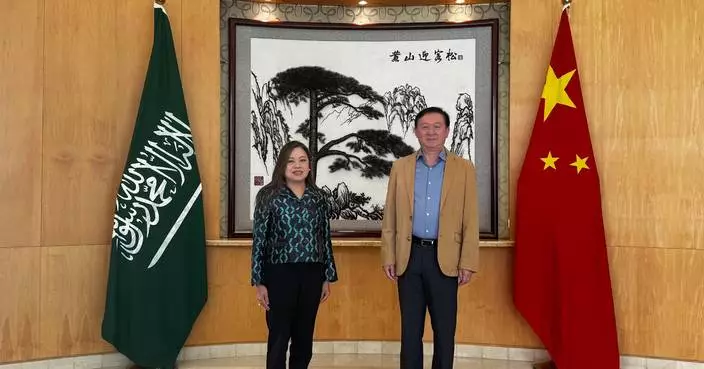In early August in Beijing, with the midday temperature nearing 40 degrees Celsius, Malawian student Phiri and his classmates were inspecting the growth of soybeans in the experimental field of China Agricultural University.
Several days ago, he returned to China from his hometown and rushed to the fields to collect data on the impact of high temperatures on soybean growth, which he said was crucial for his studies.
"All these things that we look at, we check whether the treatments are working or not and then we'll see what should we do in order to avoid this next time. We'll have to check what disease this is and we record it," said Phili.
Thirty-year-old Phiri is an agronomist. He said that in Malawi, out of a population of over 20 million, around 80 percent are smallholder farmers. Due to a lack of effective methods to control diseases and pests in crops, along with a shortage of modern agricultural techniques, many farmers do not produce enough food to feed themselves.
Phiri hopes to promote green pest control, enhance soil fertility, and increase the productivity and income of smallholder farmers by the knowledge he gained at university.
"If we tested the soils and come up with the results, you'll find that in one village they only need nitrogen, but we cannot give them only [pure] nitrogen because we only have compound fertilizer. So, if we can make our own fertilizer that can help," said Phili.
After finishing data collection, Phili helped his classmates measure the height and stalk thickness of the corn to assess its growth.
This was the experimental project of Lira, an official from the Malawian Ministry of Agriculture and a local corn expert. She and Phiri both joined a cooperative postgraduate education program known as the "China-Africa Science and Technology Backyard."
Lira said that corn is the main crop in Malawi, but the yield per hectare is only between 130 and 200 kilograms. Last year, she went back to Malawi and had a chance to apply the techniques she learned at university. And the results were beyond expectation.
"As we went (back) last year, upon introducing this technology of optimizations to the farmers, we have seen that there has been a very good change. Because we have tripled and doubled their harvest yield from their previous yield. So this technology is very good for the farmers to achieve high yields. And if this can continue, the farmers can obtain food security, which can be good for the country's development," said Lira.
Last year, Phiri and five other classmates collaborated with local farmers in a village in Malawi. They said that the core of the project is to get technicians and farmers working together. Only by truly engaging in this process and understanding how to disseminate technology to farmers can technology be truly implemented.
"You can see how happy the farmers were, getting high yield from their fields," said Phili, proudly showing the photos to share the joy of harvest.
Last November, Malawi established three new "sci-tech backyards". With the learning and experience accumulated, Phiri became the head of backyard in Lisasadzi, Kasungu District, Malawi, and he expects to make greater contributions to his country.
"Making our own fertilizer is very important. And coming here, this the third year, I'm hoping if that I can learn how to make fertilizer, it can help our country," said Phili.
Launched by China Agricultural University in 2019, the China-Africa Science and Technology Backyard aims to cultivate a group of agricultural technology innovation talents in Africa who not only possess modern agricultural production theoretical knowledge but also have comprehensive practical skills in agricultural production.
Following a unique cultivation pattern that combines theoretical study with practice, foreign students like Phili and Lira spend their first year studying agricultural theory and skills in China and return to their home countries to make use of their newly acquired knowledge. In their third year, they return to China to complete their studies.
To help the students understand agricultural technology better, the university pairs them with farmers at its agricultural base in Quzhou County, north China's Hebei Province, where they gain first-hand experience.
To date, the university has developed "sci-tech backyards" in seven African countries, including Malawi, Zambia and Tanzania. The program has cultivated 91 agricultural professionals, 36 of whom have already graduated. Many have chosen to use their newfound knowledge to aid agricultural development in their home countries.
"We are more focused on localizing and applying the model of the sci-tech backyards in Africa. In the future, we will continue to uphold the concept of sci-tech backyards, based on the needs of farmers, and expand our work in more African countries. We aim to promote and apply this concept in more African countries, while also cultivating high-quality talent in Africa who understand agriculture, love rural areas, and care for farmers," said Jiao Xiaoqiang, head of the program and an associate professor at the university's college of resources and environmental sciences.
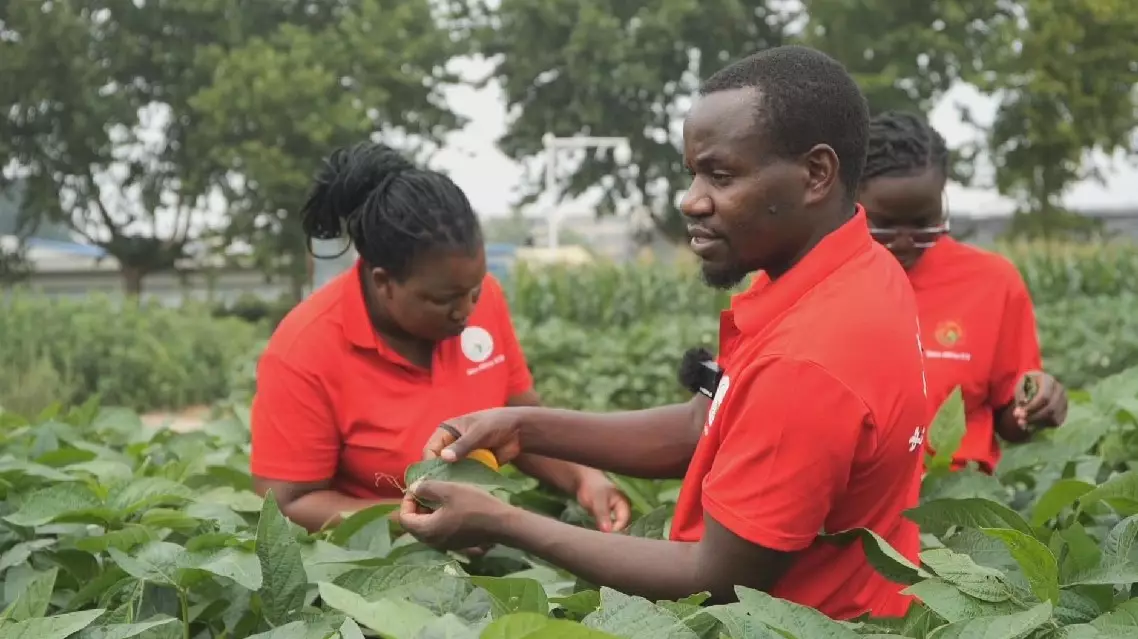
Malawian students use Chinese farming techniques to plant seeds of agricultural development
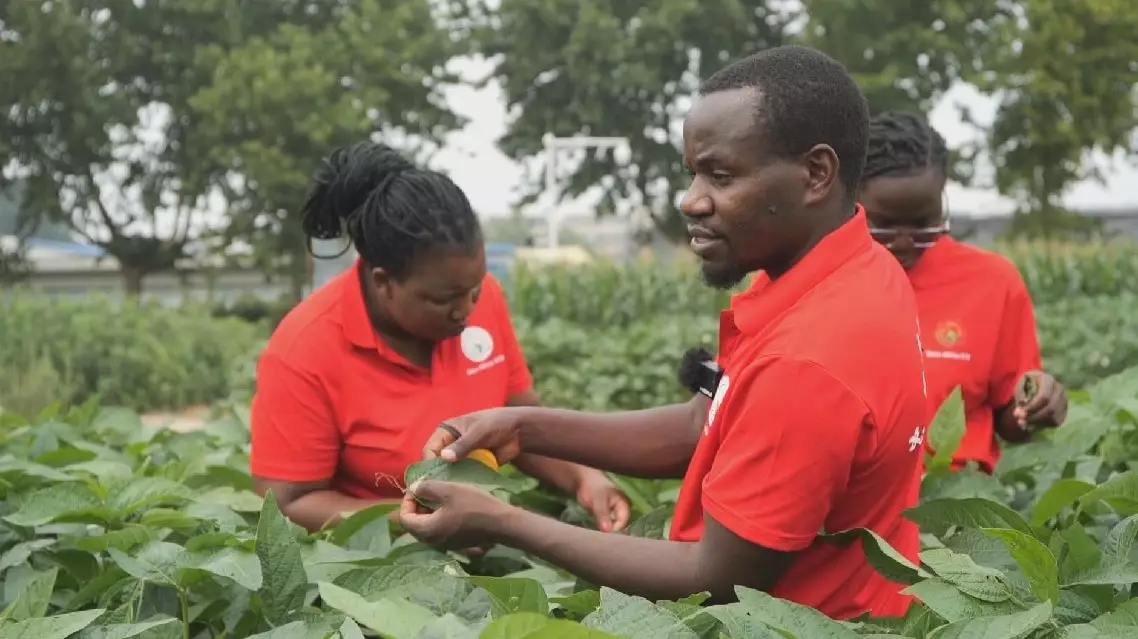
Malawian students use Chinese farming techniques to plant seeds of agricultural development


